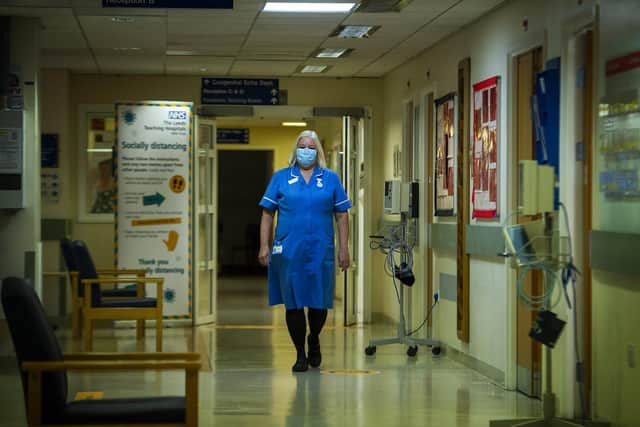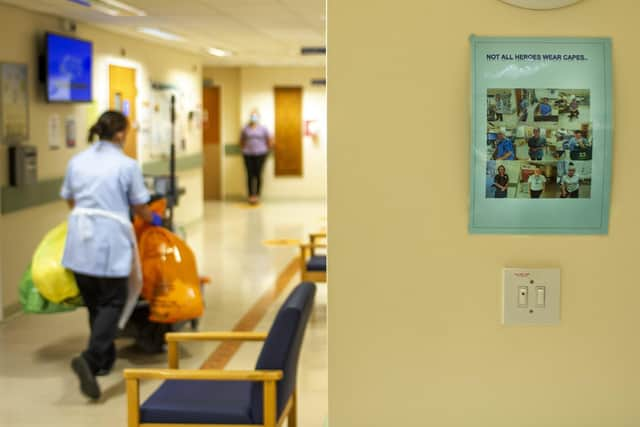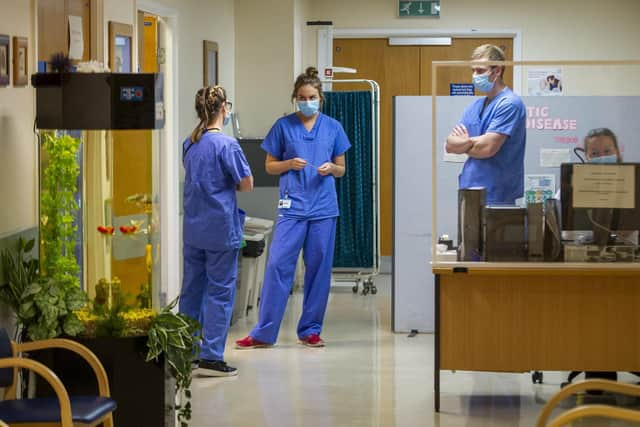Appointment backlog, winter illnesses and danger of a second COVID peak - the new challenges Leeds health chiefs are facing
and live on Freeview channel 276
In hot pursuit of the high street reopening, this weekend will see bars and pubs pulling pints again for the first time in more than three months and restaurants resuming with sit down customers rather than delivery or takeaway meals.
But, Dr Phil Wood warns that there may be a second peak of COVID cases with the lifting of lockdown and that hospitals are now also trying to work through a backlog of cancelled appointments and operations that will have affected several hundreds of thousands of people across the city.
Advertisement
Hide AdAdvertisement
Hide AdIn an exclusive interview with The Yorkshire Evening Post, Dr Wood outlines how the NHS, hospitals and GPs are planning for the post COVID recovery, the future of healthcare in the city and what enforced measures will be retained.


He said: “In many ways this has been more complicated than the first phase when we were asked to mobilise the hospital ready for the pandemic back in March.
“We did have rising numbers but nowhere near the numbers that were predicted. Last Friday was the last time we had a patient in the critical care unit with COVID and have not since that time, but the focus has shifted to trying to recover all the activity that was lost during that time.”
Priority is being given to patients that need urgent treatment or with long term health conditions such as diabetes, heart and lung disease that have been managed remotely up until now and a huge amount of work is ongoing to the physical appearance of hospitals in the long term.
Advertisement
Hide AdAdvertisement
Hide AdThis involves re-configuring waiting rooms, defining areas to treat people with COVID or symptoms both in planned or emergency cases, putting screens around reception areas and having supplies of PPE.


Medical bosses are also continuing with their regular planning ahead and are currently preparing for seasonal winter illnesses - but further flu pandemics are not being ruled out.
Dr Wood said: “We envisage that COVID will be here for 12 months. We are planning how we turn back on some of the routine services, going into winter months where we expect seasonal winter illnesses will be with us. That is all factored into the plan based on how many COVID cases we will expect.
“We will see in the next three or four weeks whether there will be a second peak on the easing of lockdown, shops and pubs reopening. We will soon see whether that is going to have a significant impact.
Advertisement
Hide AdAdvertisement
Hide Ad“There are concerns the world might be moving into a time where there are pandemics more frequently.”


The pandemic has, however, driven a shift in the way health services and hospitals operate, that Dr Wood says was in the offing but taking time to materialise, and it is unlikely that all services will be offered as they were before.
For example, Dr Wood is based at St James’s Hospital but as Chief Medical Officer (a role he started at the beginning of May) he also oversees Leeds General Infirmary, Chapel Allerton Hospital, Leeds Children’s Hospital, Leeds Dental Institute, Seacroft Hospital and Wharfedale Hospital.
While not doing physical meetings was hard, he added that it was more time efficient to use Zoom, for example, rather than travel and the same is being applied to dealing with patients.
Advertisement
Hide AdAdvertisement
Hide AdHe said: “We have used a lot of digital or telephone consultations instead of outpatients. That is something that the NHS has wanted to do for a long time and progress has been slow. It is interesting that this has driven that change and our plan is to carry on doing that.
“It is a significant change. There has been a lot of services that people have wanted to change and it has happened. While we wish this had never happened, there is some good to come out of it.
“Working with GPs much more closely about supporting patients without bringing them into hospital has positives that we absolutely will not want to lose in the future. The ambition that the NHS had about care closer to home is something that we need to hold on to and use the opportunities of digital, telephone, video.
“The last pandemic of this size is not within anybody’s working lifetime. The country and the NHS has been planning for a flu pandemic for a long time. This has been different to that, this has been a new illness that nobody has treated before and it is a real testament to how strong the professional ethos and the commitment of the NHS has been.”
Comment Guidelines
National World encourages reader discussion on our stories. User feedback, insights and back-and-forth exchanges add a rich layer of context to reporting. Please review our Community Guidelines before commenting.